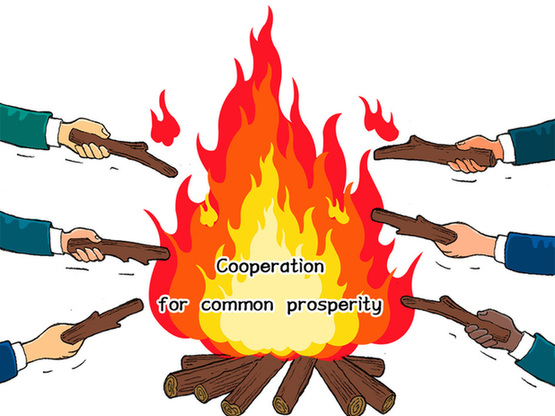The Belt and Road story: Achievements and responsibilities
china.org.cn / chinagate.cn by Wang Xiaohui, May 14, 2017 Adjust font size:
|
The Belt and Road Forum for International Cooperation is set to commence on May 14, when the world will again focus its attention on Beijing. [Zhai Haijun/China.org.cn] |
This high-level forum attended by many heads of state, and over 1,000 Chinese and foreign representatives, is designed to explore all possible themes related to the three key issues -- international consensus and the outcomes of the Initiative as well as the challenges in its implementation.
1. Has the international community reached consensus on the Belt and Road Initiative?
An affirmative response can be given to this question. China's "circle of friends" has kept expanding in the three years or so since the Initiative was first put forward by Xi. Up to now, it has gained support from more than 100 countries as well as international organizations, with over 40 having already signed related cooperation agreements with China. This undoubtedly shows the international community has reached broad consensus on the Initiative. Such consensus is inspired by history and necessitated by reality.
The consensus is definitely inspired by history. The original "Silk Road" began to take shape more than 2,000 years ago when Zhang Qian, an imperial envoy of the Han Dynasty (206 BC – 220 AD), set foot in the Western Regions [Central Asia]. The land and maritime silk roads that subsequently developed connect the civilizations formed in China, West Asia, Central Asia, North Africa and the Mediterranean. In the past two millennia, numerous followers of Zhang, the Buddhist Monk Xuanzang, Admiral Zheng He and Marco Polo have traversed these passageways, regardless of wild winds, burning sun and rolling waves. History tells us that it is the roads and seaways, and people that promote the goods trade, the spread of cultures, mutual learning between civilizations and the rapid development of world civilization and human society.
The current consensus is necessitated by reality. Since the 1950s, scientific and technological progress and growing social productivity have powered rapid global growth and accelerated economic globalization. However, the latter has repeatedly suffered setbacks as a result of geopolitics, ideology and competition over resources. From trade barriers to Cold War, "de-globalization" factors have influenced the whole process, holding back global growth like blockages and blood clots in the arteries. In this context, Xi proposed the initiative to build a "Silk Road Economic Belt" and "21st Century Maritime Silk Road." The Belt and Road Initiative is widely embraced by the world because it not only upholds equality, mutual benefit and win-win cooperation, but also responds to major pressing problems facing human society, such as a widening wealth gap and sluggish economic growth. With lessons from history, the Initiative encompasses the global landscape, charting the course of the future.
